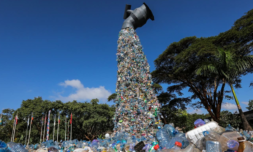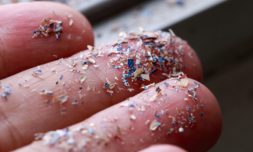Scientists have developed an entirely new enzyme capable of completely breaking down plastic in a matter of days. This has renewed hope that we can begin to effectively manage the world’s leading waste crisis.
In all likelihood, most of your throwaway plastic will outlive you by some 350 years before it decomposes. Depressing thought, right?
Now consider that one million single-use plastic bottles are purchased every minute, while up to five trillion plastic bags are sold in just a year. Delicate ocean ecosystems continue to be desecrated by the stuff, and only now are we beginning to understand the extent of health concerns surrounding microplastics.
Despite the efforts of even the most ardent recyclers among us, a frankly pathetic 10% of the world’s plastic trash is reused.
Activists aren’t exaggerating when we refer to plastic pollution as a crisis, but alas crises have been solved before. Descending into nihilism is not an option, and besides, we’ve cause for rare glimmer of optimism on the subject, thanks to a major scientific breakthrough this week.
Scientists at the University of Texas, Austin, have successfully engineered a new enzyme that can physically break down PET plastic – which makes up 12% of all global waste – in a matter of days, according to a peer-reviewed Nature journal.
A team of researchers developed the enzyme they’re calling FAST-PETase using natural plastic hungry bacteria, before running a machine learning application to find the most effective mutations at degrading polymers within various environmental conditions, and quickly.




















